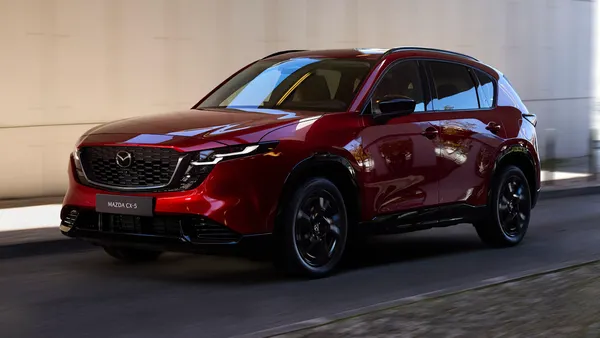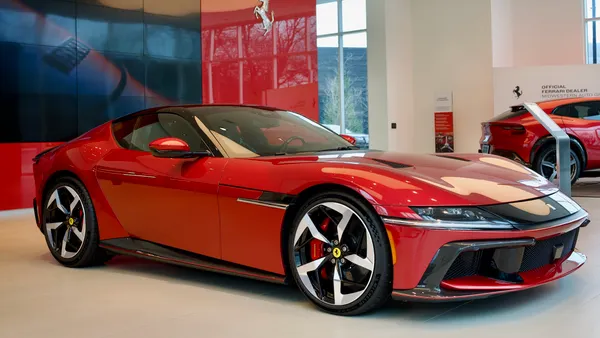Editor's note: This story is part of the WardsAuto digital archive, which may include content that was first published in print, or in different web layouts.
As the retail automotive sector endured bumps created by the UAW strike and what many experts call an ongoing chip shortage, new-vehicle inventories rose while the average price of new vehicles remained stagnant during October, reports Kelley Blue Book.
But dealers should ignore industry naysayers and look for more profitable quarters ahead, many analysts predict.
The average price paid for a new vehicle in the U.S. during October was $47,936, according to Kelley Blue Book. That is less than 1% more than the $47,797 price paid in September. Compared with October 2022, retail new-vehicle prices in the U.S. were about 1.4% (or $670) lower. Year to date, new-vehicle transaction prices have fallen more than 3.5% as downward price pressure continues to favor buyers in the market.
“New-vehicle prices in October were mostly unchanged from September,” says Rebecca Rydzewski, research manager at Cox Automotive, parent of Kelley Blue Book. “The only big mover last month was Tesla, which continues to shift pricing at a surprising pace. In fact, the price shifts at Tesla in 2023 showcase just how dynamic pricing can be with a direct-to-consumer sales model.”
Tesla has routinely slashed prices this year to remain competitive. Although Tesla’s “Technoking” and CEO Elon Musk blames the need to do so on the macroeconomy, analysts note other factors at play.
In October, Tesla’s average transaction prices were 5.2% higher than in September, reversing 10 straight months of transaction price declines for the electric car maker.
Plus, Tesla still has industry-leading margins of over 16.3%, financial analyst Kevin Paffrath tells Yahoo Finance. “That means $16.30 of every $100 is gross profit. They are beating every other American EV manufacturer. They have so much going for them.”
Yet Musk’s comments during the recent third-quarter earnings call have left some in the industry nervous about the automaker’s direction and the future of EVs, Paffrath tells Yahoo Finance. Other analysts note Musk’s lack of confidence in the current macroeconomic environment.
The numbers prove that. Soon after Musk’s statements, Tesla shares dropped more than 15%, the stock’s worst weekly performance this year, reports CNBC. By mid-November (Nov. 13), Barron’s, MarketWatch and other industry watchdogs noted Tesla stocks “soared” just over $75 below its 52-week high ($299.29) on July 19.
Some analysts note Musk’s dour attitude during the call relates more to his company than electric vehicles’ future. Tesla’s profit margins have shrunk due to the cost of goods while China’s BYD, its biggest competitor, increased its gross margin in auto sales during the same period, reports The Motley Fool.
Despite generally higher prices, luxury brand sales were strong in October, with luxury share of total sales increasing to 19.4%, up from 18.6% in September. Luxury makes besides Tesla that posted sizeable transaction price gains in October included Cadillac, Genesis, Jaguar, Lincoln and Volvo.









